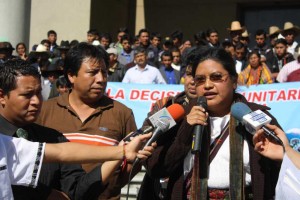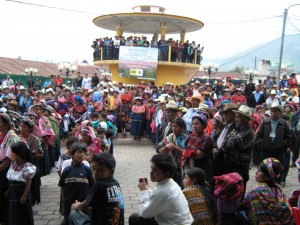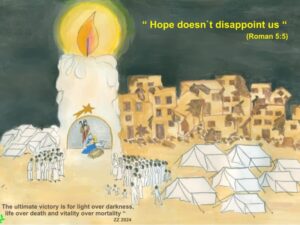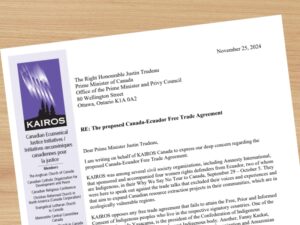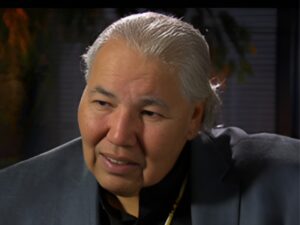Partners in Guatemala question proposed moratorium and demand respect for Indigenous rights
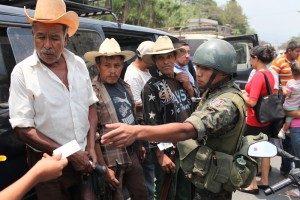
Checkpoint between San Rafael Las Flores and Mataquescuintla during the first day of the declared State of Siege. Mataquescuintla, Jalapa, Guatemala. May 2, 2013. Photo: James A. Rodríguez / MiMundo.org
On June 13, 2013, KAIROS and many human rights and solidarity organizations in Canada, the US and Europe wrote to Guatemalan President Otto Molina Perez to support the call by Guatemala social movements for his government to revoke a mining license that had been recently granted to Tahoe Resources. The open letter outlines the government’s failure to follow due process or respond to the concerns of Indigenous peoples and other communities who are challenging the company’s Escobal project. Instead of hearing from its citizens, the government responded with “increased militarization, the suspension of constitutional guarantees and the repression of community leaders engaged in legitimate and peaceful resistance to the Escobal project.” In fact, the government declared a state of siege in four municipalities surrounding the mine which led to further human rights violations.
One month later, presumably in an effort to quell the growing resistance movement against unjust mining in Guatemala, President Molina Perez and the mines minister floated a trial balloon: a two-year moratorium on the granting of new mining licenses. Molina Perez also signalled that he would use the opportunity of a moratorium, which would still require Congressional approval before coming into effect, to reform the country’s mining royalty rates. However, he did not commit to fundamental changes to the country’s mining laws to address the violations of Indigenous rights and other social and ecological harms that sparked the protests in the first place. A year ago, Indigenous communities that make up the Western Peoples Council (CPO) launched a significant legal action against the existing 1997 mining law on the grounds that it is unconstitutional because it fails to fulfill national and international obligations requiring the State to consult with indigenous people regarding policies that will significantly impact their territories.
Several Indigenous and peasant organizations in Guatemala – as well as CEIBA, an ecological justice organization and a longstanding KAIROS partner – have denounced the moratorium announcement as a political tactic designed primarily to demobilize citizens who are demanding fundamental changes to the country’s mining laws. They point out in a statement (English version) that if a moratorium were introduced, it would not affect the more than 100 permits that have been granted by the current administration over the past 18 months, including a controversial license to Tahoe Resources. In fact, the President chose to make his announcement at the site of Tahoe Resources’ Escobal project, sending a clear signal to the company and its investors that their project would not be delayed. Ironically, in order to grant these permits in the first place, the Guatemalan government had lifted a previous moratorium that had been brought in by their predecessors.
KAIROS continues to support CEIBA in its vital work accompanying community consultations and referendums based on Maya traditional decision-making practices. Over the past six years, CEIBA has worked with communities in various parts of Guatemala to facilitate 67 consultas on large-scale mining and other megaprojects that would affect the people, their lands and their health. Close to a million people have voted in these community consultations: an impressive and inspiring assertion of the rights to free, prior and informed consent (FPIC), self-determination, and democratic participation. CEIBA continues to advocate for respect for Indigenous rights to be a cornerstone of the country’s mining law reforms, including the right of communities to grant or withhold their free and informed consent prior to any project developments.
For more information, please contact Ian Thomson, Program Coordinator for Ecological Justice through Corporate Accountability, ithomson@kairoscanada.org; or Rachel Warden, Latin America Partnerships Coordinator, rwarden@kairoscanada.org, 1-877-403-8933 ext 242.
